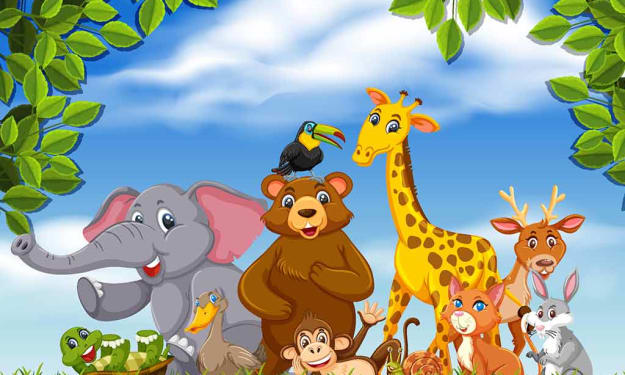Why I Quit Print Publishing and Moved to Digital Writing
The future is here

Why I Quit Print Publishing and Moved to Digital Writing
This is not a cry in my beer sour grapes story. But did you ever spend 6 years writing a book? Then upon servicing the media with it treated you like the worst thing that ever climbed out of the sewer? If the answer is yes, then you'll want to read this.
My memoir, "Guitarlo" (Hear2Ear 2016). Self-published not because of rejection from traditional publishers. (I never shopped the manuscript). I didn't want to spend more years trying to get a New York agent to read it. Sign away the rights. Lose control, and then after a brief appearance in the limelight disappear.
Many newspapers have the policy to reject self-published books from review. They state unless your work is on the New York Times Bestseller list don't bother them.
Some self-published self-help books have been reviewed by the Times Bestseller list. I don't know how much it costs. But I feel comfortable to say the self-help and How-To genres won't win a Pulitzer.
The focus of this essay is on literary work. If you published coffee table celebrity photos for example. Then the media vampires will give you a little feed.
This is about a writer trying to raise awareness for their book to media outlets who don't care.
One editor noted the game of which he was aware. "Many people wrapped up in and trying to make a go of their own thing. Whatever that is - that unless there's an immediate payoff. They feel that they can't risk stepping out of their focus wheel."
As long as artists have been trying to market their work this has always been the case. It got a whole lot harder.
Guardians of the Limelight Galaxy? A sampling of typical corporate media attitudes. You don't need it.
The music critic for the Star & Tribune wrote back. I tagged him on a book press release. Thinking in his line of work that was normal. If he doesn't want a tag change the Facebook settings? He verbally assaulted me. Did I promote my book off of his book? I had no idea how you go about trying to promote a book of someone else's book? Especially, considering that his book and mine are completely different genres. Status: unfriended and blocked me on Facebook.
The Current radio posts book reviews on the Minnesota Public Radio website. Their Digital Producer wrote confusing submission guidelines. I decided what the heck harm could it do to let him know about my book? He sent me an email and said my book didn't fit their format? He never read the book! Status: unfriended me on Facebook. Nice response from a community and State-funded media non-profit?
What do receptions like these mean? You are self-published literature! Don't need God or an attorney to spell it out. If they thought I mattered they'd whistle a different tune past the pop graveyard? It's all about what's in it for them i.e. stand in the artist's limelight by association? Don't see any eyeball juice? It's goodbye yellow brick road. I recall Prince and Bob Dylan. Until their success was undeniable. Both were ignored by the Minneapolis media.
Killing Trees
In 1983, my chapbook of poetry. "Tomorrow Never Answers" featured in the local Twin Cities Reader newspaper. The book was self-published. What changed. Before the Internet, the press was more open. Took chances. And wasn't worried about their search engine ranking. In today's Focus Wheel social media circus. Everyone is an influencer and the competition for mindshare is vicious. Getting on anyone's newsfeed is a matter of luck, hard work, and money.
The good news is an Indie writer no longer needs to subject themselves to the ego gauntlet.
Platforms like BLOGS and VLOGS. And other non-traditional channels can offer more exposure than the "compromised" gatekeeper.
There are self-published physical print exceptions. Writers who have a built-in fan base. For example, people who sell a product give away their book.
The book is a bonus if you sign up.
The book is a business card.
Success is subjective. To claim all print media is a waste can be argued. This is my experience.
Lawrence Ferlinghetti, a famous writer and bookstore owner. Hated the idea of printing his poetry. He got a friend to start a publishing company (City Lights) to publish his books.
To self-publish a Novel length print on demand book requires deep pockets. Let me be clear. To publish an e-book is far less expensive. After paying editors. Manufacturing costs. ISBN and Barcode, publicity or marketing, and the promos an ROI is unlikely.
One review on Publishers Weekly will set you back $400.00. In my experience readers don't care about reviews nor do "names" on the flap. It's like tossing a message in a bottle into the ocean.
Every time I mailed a copy of my book it cost on average $15-$20.
If you're trying to market "literature" to the public. Not all the DIY email marketing lists. Book awards and coach classes will move the needle.
Now and then a self-published literary Novel gets signed by major print publishers.
The major print booksellers own the game and you'll never compete against them. Like the music business, the print book business locked up.
Then I stumbled into Medium and digital writing.
After 6 years of struggling with my book, I posted my stories on Medium and other platforms. Within a month my book chapters were curated by Medium. Without any marketing cost, the potential audience reach grew to over 100 million eyeballs.
Pros and Cons
Money is starting to trickle in but I don't have to spend half my precious writing time marketing.
The downside to digital publishing is there is no advance. Prone to sudden change. No limelight bookstore reading and press release. Digital publishing also lacks an in-house marketing team. No one is going to pitch your stories to Hollywood.
A book publisher may offer an advance. But they also own your copyright with no guarantee the book will remain on the shelf!
Brick and mortar or digital publishing?
Both have their risks and advantages but a physical print publisher has a bottom line. What are they willing to invest in you? There's an old expression in the print business. "How many books they giveaway will determine how many they will sell."
Old school Academia still believes in brick-and-mortar publishing. It's more credible than online publishing? They're wrong. Many Bloggers have huge followings and make more money. We may be witnessing the end of print publishing. Letting go of that warm feeling of holding a book in your lap won't be easy.
I wish you luck to get that New York agent to read your manuscript. A media outlet to review your work.
Digital writing delivers daily cigars. Not only in dollars but also with reader and writer interaction.
About the Creator
Arlo Hennings
Author 2 non-fiction books, music publisher, expat, father, cultural ambassador, PhD, MFA (Creative Writing), B.A.
Reader insights
Outstanding
Excellent work. Looking forward to reading more!
Top insights
Compelling and original writing
Creative use of language & vocab
Easy to read and follow
Well-structured & engaging content
Excellent storytelling
Original narrative & well developed characters
Expert insights and opinions
Arguments were carefully researched and presented
Eye opening
Niche topic & fresh perspectives
Heartfelt and relatable
The story invoked strong personal emotions
Masterful proofreading
Zero grammar & spelling mistakes
On-point and relevant
Writing reflected the title & theme






Comments
There are no comments for this story
Be the first to respond and start the conversation.